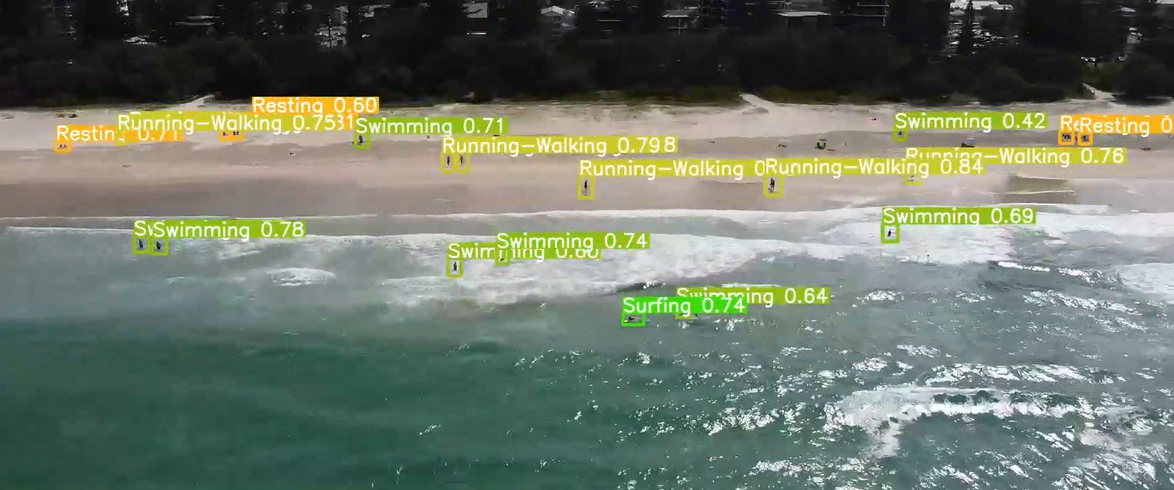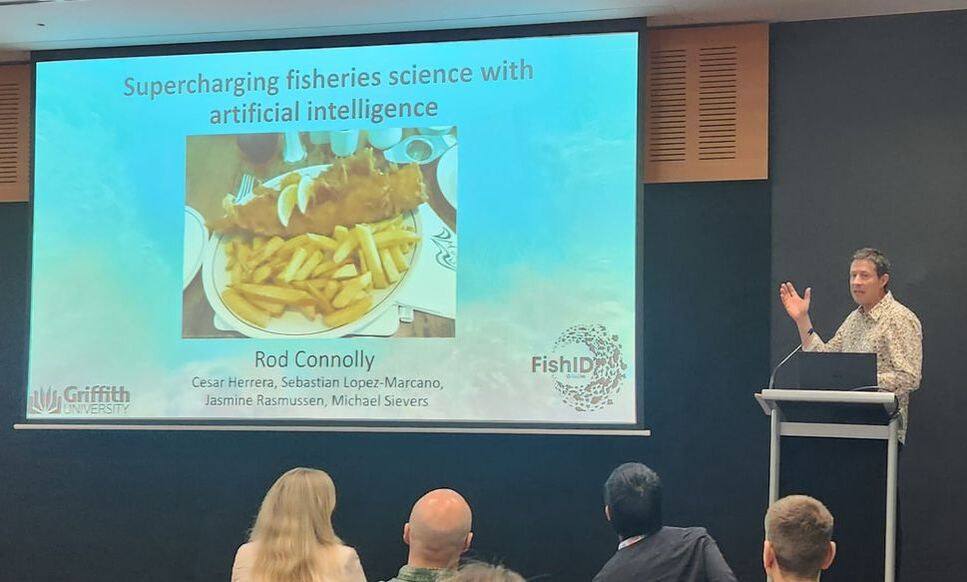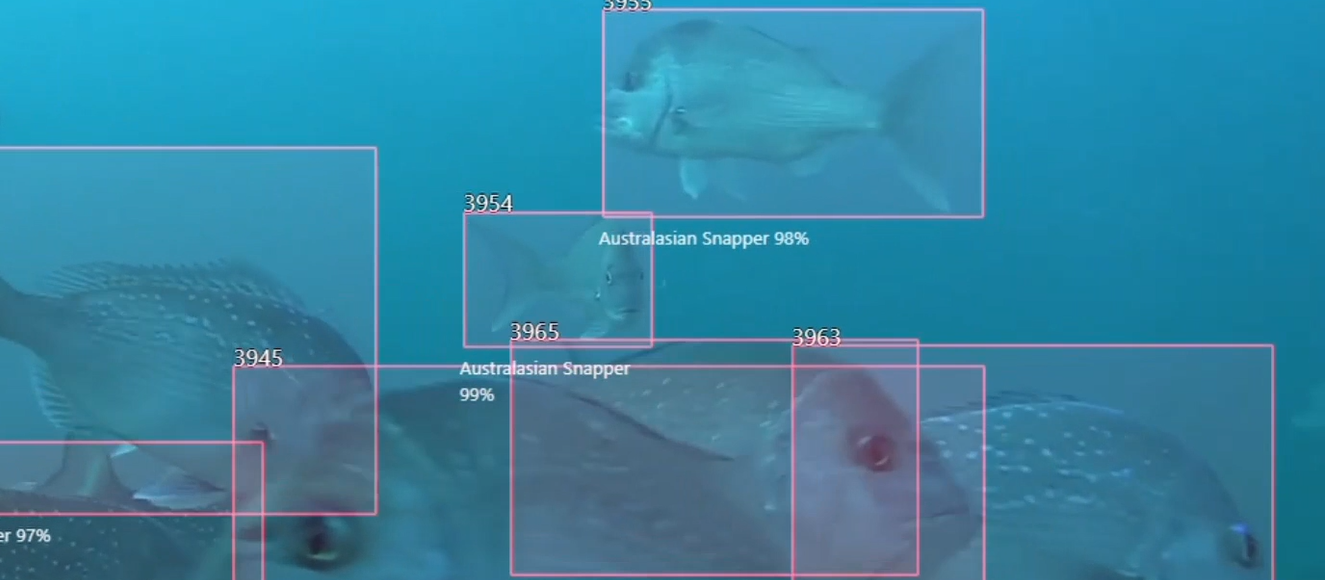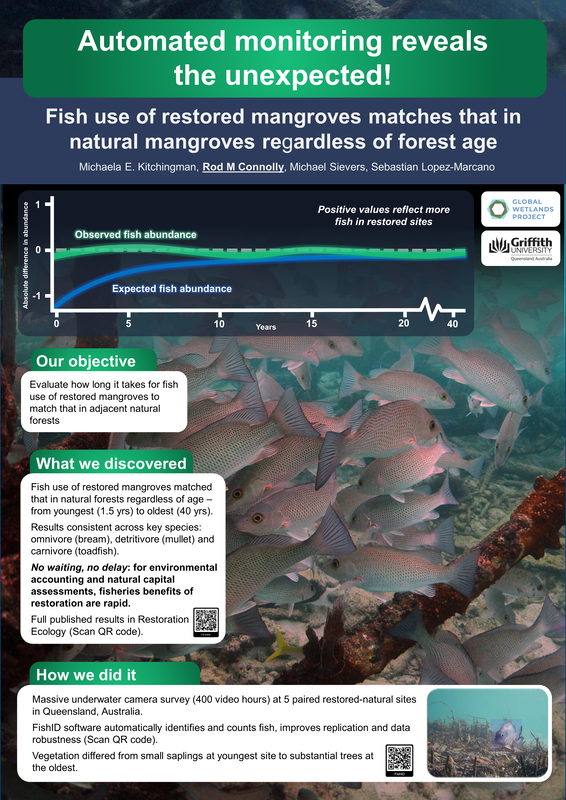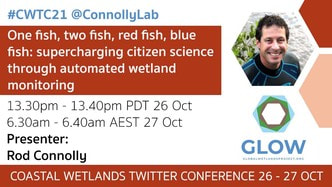News and Media
Blog Posts
Events and Announcements
|
Fish AI Consortium presentation: Rapid improvements in fisheries monitoring with underwater computer vision
Prof. Rod Connolly presents the inaugural seminar in the Fish AI Consortium series, showing how automation using underwater computer vision is transforming fisheries science. The FishID team's use of AI-based image analysis on inexpensive camera systems is revolutionising fish monitoring, overcoming barriers in reliability and cost. Collaborating with fisheries managers and conservation NGOs, the seminar uses examples of efficient stock assessments and restoration monitoring crucial for environmental accounting. See Rod's seminar below. Rod Connolly and his team's 'BeachAI' featured in City of Gold Coast news
The team worked with City of Gold Coast to automate the counting of people visiting Gold Coast beaches. No personal identifiable information is captured or stored as part of the project. In 2022-23, there was an estimated 34 million visits to Gold Coast beaches. AMSA 2023 Conference Gold Coast 2-6 July 2023
Presentation by Rod Connolly 6th July: Supercharging Fisheries Science with Artificial Intelligence The presentation highlights opportunities and challenges faced in automated monitoring of fish abundance, biomass, and behaviour. Automated data extraction using computer vision on robust and inexpensive camera systems is particularly valuable for increasing efficiency and reliability in monitoring that is currently difficult, dangerous, or prohibitively expensive. ARC DECRA award 2022—Dr Michael Sievers
Redefining success in marine ecosystem restoration Michael will use this prestigious ARC grant to improve evaluations of marine ecosystem restoration through the measurement of key animal health metrics. This project expects to generate unique knowledge about why ecosystem restoration succeeds or fails, and improve our understanding of how animal data can better inform future restoration projects. His use of artificial intelligence will enhance our capacity to use new and efficient techniques to monitor and evaluate ecosystem restoration in a more ecologically valid way. Benefits include more effective ecosystem restoration, wildlife conservation, and the enhancement of ecosystem services including sustainable fishing and eco-tourism. Discussion—From sharks in seagrass to manatees in mangroves, we’ve found large marine species in some surprising places
When we think of mangrove forests, seagrass meadows and saltmarshes, we don’t immediately think of shark habitats. But the first global review of links between large marine animals (megafauna) and coastal wetlands is challenging this view – and how we might respond to the biodiversity crisis. Read the conversation article on this research paper. Fish ID: Counting fish with clever cameras
Fish ID is a tool developed by GLOW. It uses artificial intelligence to identify and count fish, and track their movement and behaviour. It works on fixed cameras, underwater drones, and acoustic cameras for night time or murky waters. |
The Conversation: Restoring coastal habitat boosts wildlife numbers by 61% – but puzzling failures mean we can still do better
In a massive global review of papers measuring biodiversity in coastal restoration we found generally favourable but highly variable outcomes. The extent of restoration success is not easily predicted and it's important to monitor against objectives for as long as possible - we emphasise how emerging technologies like artificial intelligence help, e.g. see Automated Cameras Monitor Restoration PDF Read The Conversation article here New paper in Nature Sustainability:
Enabling conservation theories of change Check out this 'Behind the Paper' blog: Theories of change for living in harmony with nature - How can we coordinate efforts internationally to achieve global sustainability goals? FishID has a new webpage
FishID is an innovative system using artificial intelligence to identify, count and measure aquatic animals and plants. The FishID team provide customised solutions that enable clients to make informed decisions based on reliable and comprehensive data. To find out more, please visit FishID.org. Cronin Award 2023 - Dr Michael Sievers
Outstanding marine and estuarine science by an early-career researcher. Awarded every 2 years by the Coastal and Estuarine Research Federation, a USA-based organisation with global membership, the Cronin Award is testament to Michael's impact in wetland conservation and restoration science. Congratulations Michael! The award will be presented at the CERF 2023 Conference in November. MMM6 Conference Colombia 24-28 July 2023
Presentation and Poster by Rod Connolly: Fish use of restored mangroves matches that in natural mangroves regardless of forest age Coastal Wetlands Twitter Conference
See Rod's thoughts on the value of Artificial Intelligence for marine citizen science in monitoring important wetland ecosystems.
Conference program. Conference Review. Keynote presentation archive. |
Video Library
|
Oyster Restoration Reef
The trial of a new type of reef using waste oyster shells has been taking place in Moreton Bay. Halina from ABC Landlane revisits her story from 2021 to see if the reefs are making a difference. Featuring Professor Rod Connolly, his PhD student Marina Richardson and undergraduate Estuarine Ecology students. |
Ocean predators and climate change
Top-order predator populations have cascading effects on the food web of coastal wetlands, altering the effectiveness of these enviroments as global carbon sinks. |
|
|
|
|
Coastal Carbon
Working in collaboration with CSIRO, the Connolly Lab uses natural chemical traces to map the flow of carbon through food webs, and its storage and release from coastal sediments. |
Spatial conservation planning
Connectivity and linkages between marine ecosystems effects the performance of marine reserves. Spatial conservation planning provides a framework for the smart placement of conservation zones. |
|
Sustainable Fishing - Solomon Islands
Fish are an important food source for the people of the Solomon Islands. Chemical analysis of fish livers traced where these fish get their nutrition from. Resilience: as clear as mud
In this TEDx presentation at St Hilda's School, Dr Connolly talks about coastal ecosystem resilience: how you get it and how do you know when you have it? |
Enhanced resilience through connectivity
How can we build resilience in marine ecosystems? The Connolly Lab uses a range of techniques to explore how connectivity among different components of ecosystems influences resilience. Vanuatu social-ecological resilience mapping
Surveys at Port Resolution, Lenakel and Northwest Whitegrass mapped the distribution and density of fish and coral relative to villages. |
Coastal Flood Impact
In 2011, flood waters from the Brisbane River dumped over 10 million tonnes of sediment into Moreton Bay. ABC's Catalyst joins the Connolly Lab team to investigate the ecological impacts.
In 2011, flood waters from the Brisbane River dumped over 10 million tonnes of sediment into Moreton Bay. ABC's Catalyst joins the Connolly Lab team to investigate the ecological impacts.
